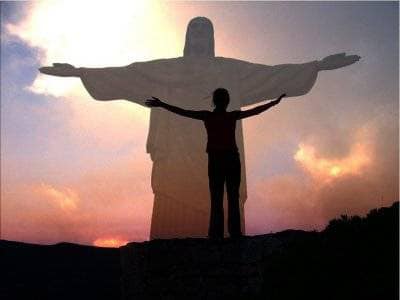230 total views
Homily for Tuesday of the 24th Week in OT, 13 Sept 2022, Feast of St. John Chrysostom, Lk 5:33-39

Today’s Gospel is about the lifeless body of a young man, the son of a widow, being brought back to life by Jesus. How is this related at all to our first reading? Well, St. Paul is also talking about a Body—not that of the individual Christ but rather that of the corporate Christ. And every disciple is called to be part of that “One Body,” which is the Church, by receiving the One Spirit through baptism. We ourselves are like dead bodies brought back to life in Christ, through the Holy Spirit.
Our individual bodies are alive because we breathe the breath of physical life. That is how it goes with the individual human body that is kept alive by a mortal spirit. But St. Paul is speaking about a different kind of body all together, kept alive by an immortal Spirit.
He is speaking about the community of disciples made up of Jews and Greeks, slaves and free, men and women, individuals bonded together spiritually as a community of disciples, functioning like parts of the One Body of Christ, because they have been given “to drink of one Spirit.”
The Holy Spirit, as it were, becomes our shared or common breath of eternal life in Christ, empowering each member to function according to the variety of gifts that they have received from the one Spirit.
In the Church, St. Paul refers to these gifts as the “charisms” that empower the disciples for the ministry, by uniting us in Christ so that we can participate in the life and mission of Christ. He speaks about these charisms at length in Chapter 12 of 1 Corinthians, which he ends with an exhortation. He says, “Strive eagerly for the more excellent spiritual gifts.”
And then he dedicates the whole of chapter 13 to love. And towards the end of this chapter, he echoes the earlier exhortation he had made at the conclusion of chapter 12. This time he identifies the more excellent gifts that he was referring to: faith, hope, and love. And then, at the very last line, he declares, “But the greatest is love.”
Paul, as it were, is saying, “You rejoice at the variety of gifts that you have received from the Spirit. They must be subordinated to the greater gifts of faith, hope, and love, which are the only signs that it is still the same Spirit breathing in us. The lesser gifts are nothing unless we strive for the greater gifts, the greatest of which is love. Without love we have no assurance that it is the Holy Spirit truly at work in the Church.
We are nothing but a cadaver ready for burial if the Holy Spirit is not at work in the Church, which is called to be the LIVING BODY OF CHRIST.


















